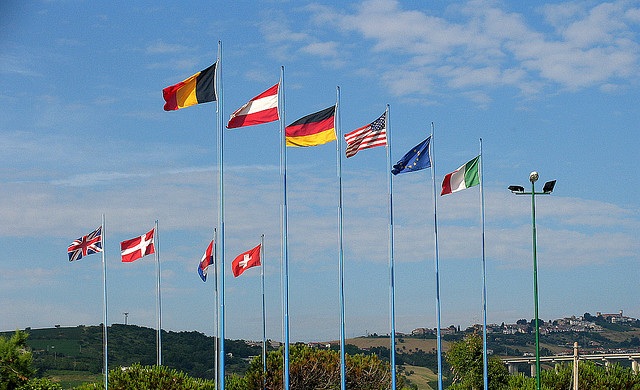The EU’s 13th crisis management summit in two years, held in Brussels at the weekend, was the non-event we have come to expect from the leaders of a world economy mired in inescapable debt.

Wednesday October 26 is now the big day. So what is the situation they now face and how did it come about?
The world’s stock markets are junior to debt markets. Debt markets are junior to sovereign debt markets. As such, sovereign debt is the very foundation of our economic lives. Nothing much can prosper when they are in trouble.
Sovereign debt has grown drastically, to the point that even maintaining it is becoming unsustainable. Governments overleveraged themselves by taking on long=term overheads based on the credit bubble’s inflated short- term tax income. Property bubbles developed generating new tax income bubbles, which, in turn, were filtered into giant state expenditure bubbles.
Public sector spending is included in a country’s GDP figures. Governments have long been boosting GDP by bloating public sectors instead of growing real economies. It’s a good way of gaining votes however vast state overheads have been taken on in the process. This is why we are now in trouble.
How can the system be saved?
Only dreaded austerity or a tidal wave of miraculous growth can provide the solutions.
The private sector makes wealth while the public sector redistributes it. GDP growth from the public sector is phoney growth. Now it must shrink. Shrinking public spending will make GDP figures look awful, but we must remember private sector GDP is the real one to watch.
In Europe, Sarkozy and Merkel have nailed their colours to the mast; whilst the G20 dithered, they reaffirmed their promise for ‘Bazooka Wednesday’. The market will decide whether Germany and France have come up with a proper solution. The alternative to a solution is that contagion will spread to the next level.
It is in everyone’s interest that Sarkozy and Merkel ‘kick the can’ a long way down the road. Only time can heal the economic mess at the financial heart of the west. The leaders must choose whether they want to take all the pain over a short period, or spread it out over a longer period.
While economically- Spartan analysts think we should face a short and terrible punishment, spreading the pain is certainly the most sensible – and humane – way to go. Many of those who see instant redress as the best solution don’t seem to understand that they, too, would likely be swept away by the resultant financial disaster.
Wednesday 26th October, 2011 will be historic. It will be either the beginning of the end or the end of the beginning. It’s down to Germany and France to decide which it is going to be.
If Merkel and Sarkozy bring out the ‘Bazooka’ solution, there will be a rally in the markets and contagion fears will subside. A period of inflationary money-printing alongside euro-wide austerity will kick in.
Good times will not be back overnight. Inflation will grind against the rock of austerity and rebalance the European economy over a period of three to five years. But at the end of this tough road, state budgets, debt burdens, economy and currency will be back to a sustainable equilibrium.
Alternatively, if Merkel and Sarkozy trot out facile and meaningless statements about the need to harmonise the EU and for all members to commit to European stability, the markets will dive. There will likely be a short pause to digest the statement, then a brief moment of hesitation before the market throws itself off a cliff.
If this is the case, contagion will rage through Italy and Spain, then into France. At this point it is almost impossible to judge what will happen next. If contagion hits France, there will likely be a sovereign lenders strike, eventually causing contagion to hit the US.
It is almost impossible to calculate what will happen if Europe is unable to save itself.
Who will bail out the world economy when it goes into cardiac arrest? Only the US could do so, yet with its own mammoth budget problems it might, instead, be the last giant domino to fall.
According to the popular saying, ‘the market is always right’. Leading up to Wednesday’s crunch decision, the performance of world markets appears to indicate they expect Merkel and Sarkozy will do enough to stop a disaster.
Let’s hope the saying proves to be a rule.


















